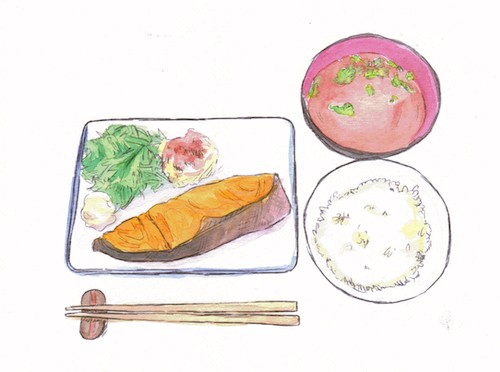
If you’ve ever looked up a dieting trend, you’ve probably fallen into an endless black hole back-and-forth discussion of robot questions and robot answers, on how to best adopt a healthy lifestyle. Frequently, discussions that look like this:
What time is the best time for us to eat?
— You should eat when your body is at peak metabolic activity and this happens when you have at least micro-fasted for 12 hours the day before. An ancient nomadic civilization in Central Asia does this thing where they eat at 2pm midday, because this is when your body releases the hormone…
Should I eliminate sugar from my diet?
— Of course! Sugar is so bad for you and causes cancer, diabetes, and totally messes up your adrenal hormones. A tablespoon of sugar is like a tablespoon of poison, and it is literally killing you slowly when you eat it. Here, just look at this study done on rats who were fed sugar every day for 6 months…
These can be interesting questions and findings, but I have yet to meet a healthy old person who has lived by and recommended this kind of lifestyle. None of my grandparents eat like this, and neither my friend’s grandparents. Instead, the majority of them seem like they mostly eat what they want, when they want, at times they like.
I recently sat down with one of my grandmother’s friends for lunch, who is also a close family friend of mine. She’s an active 80-something year old who regularly goes out, does all her own household chores, and frequently hangs out with her friends and family. You’d look at her and think she was maybe 60. Maybe.
I asked her if she had any secrets to staying active into old age, specifically if she paid any special attention to how she ate: “Do you follow any diets? Eliminate certain foods? Only cook with certain ingredients?”
She paused for a moment, then replied, “I think I eat a lot of Japanese food. Mostly because it’s the easiest to make and my family likes it too — but Japanese food really encompasses everything, so I guess that doesn’t really mean anything!” she laughed.

We don’t need a diet, we need beliefs
At first I was disappointed she wouldn’t share her diet secret to longevity with me, but I ended up realizing that hidden within her response was actually really good advice. She’s absolutely right, because Japanese cuisine in itself doesn’t really mean much in terms of health — it can include fried foods, refined carbs, and sugary foods as much as any other cuisine. But what it is based on is several beliefs: moderation, variety, balance, and eating with the seasons, just to name a few.
Our fundamental understanding of a healthy diet is not too complicated, and has been the same for generations — something food writer Michael Pollan highlighted a few years ago: “Eat food. Not too much. Mostly plants”.
So the key to a lifelong healthy diet is to make these words sustainable for life, by focusing our eating efforts not on the micro-decisions which work against the things we believe in and enjoy, but on those which work with them.
In an essence, a sustainable diet is a diet that focuses first on your principles.
Considering your principles as part of your approach
For me, some of my principles include:
- My relationships are my priority — this means spending lots of quality time with friends and family, and sharing joyful experiences together.
- Learning and celebrating my culture is important to me, food practices and dishes included.
- Nothing in extremes, everything in moderation.
These principles mean a lifestyle which occasionally includes desserts, refined carbs, saturated fats, and meat, in addition to plenty of whole foods, fruits, and vegetables. The freedom to bake the sweets I want during holidays, to enjoy the special meals my mom would make for the family every year on New Year’s, or even the simple ability to go to a friend’s house and eat anything they serve me without restriction or emotional limitation — in addition to a traditional nutrition-based approach, all of these things are incorporated in my lifestyle eating philosophy. While your principles may look different for you, your relationship with food should continue to adhere to them.
So the answer to questions like, “What time should we eat in the morning to lose weight?”, or “How many times a week should we fast to boost our metabolism?”, are interesting in the short term but would only be helpful for the long term if we were computer programs. These debates are inherently useless because we can’t follow them for the rest of our lives — we’ll eventually have to pivot if they don’t adhere to our principles.
So if you want to lead a healthy, sustainable lifestyle, stop asking robot questions and consider your principles first. Then, you’ll begin to see the solutions to your health woes that will transform your life for the better, for a lifetime.
- What are my principles?
- What kind of life do I want to lead?
- How can these two co-exist together?
